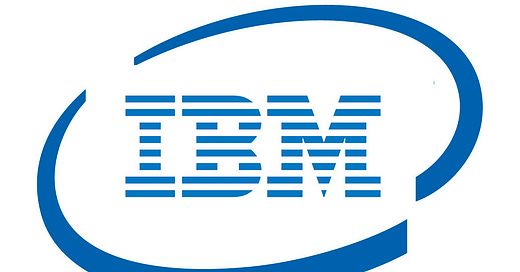Something that has long puzzled me confounds me anew in the wake of the Supreme Court’s decision against affirmative action. Immediately critics of the decision brought pressure against Harvard to end legacy admissions, on grounds that these preferences for children of alumni are no less anti-meritocratic than the racial preferences the court had just forbidden.
The puzzle was and is that anyone ever would have thought otherwise. In particular, graduate schools and corporate recruiters of Harvard graduates must have realized that some who received a Harvard diploma wouldn’t have gotten into the university without that extra boost. Has this knowledge diluted the value of the Harvard brand? I’ve neither seen nor heard evidence that is has. So the puzzle comes down to this: Why not? (A similar question applies to other selective universities with legacy policies. Harvard happens to be the one in the news and in the courts.)
The answer might be that I haven’t spoken to the right people. Maybe admissions officers at Yale Law and recruiters for Goldman Sachs check to see if the parents or grandparents of applicants from Harvard also attended the university, and apply a legacy discount in cases where they did. But again, I’ve never heard of such a practice. And I suspect it’s considered more trouble than it’s worth. Perhaps Johnny got an edge at admissions time, but what he lacks in brains he makes up in connections.
I think there’s something additional going on. For reasons of history and proximity to the centers of financial and political power, Harvard has developed a reputation as the safe choice for recruiters. Caltech and the University of Chicago attract students just as smart as the Harvard kids, but those institutions don’t have Harvard’s broad cachet. In the early twentieth century the City College of New York was known as the “Jewish Harvard” for the talented, hungry immigrants it enrolled when the actual Harvard turned many of them away. In the sciences and parts of the business world, a CCNY degree could be worth more than a Harvard degree. But not in the wider world, which didn’t know the backstory.
For most of the second half of the twentieth century, corporate officers in charge of purchasing computers had a saying: “No one gets fired for buying IBM.” IBM, the fabled Big Blue, the Beast of Armonk (New York), had the largest market share of business computers and made solid, dependable machines. They weren’t cutting edge, but neither were the needs of most businesses. An IBM mainframe was the safe choice for almost any manager.
Harvard may have become the IBM of the academic world. Significantly, the digital upstarts that displaced IBM don’t think so highly of Harvard as the rest of the country does. A 2022 study of the feeder schools to Silicon Valley found Harvard placing 27th in number of graduates employed by top tech firms. Columbia was the top Ivy League school, at 11th, followed by Cornell at 13th. Carnegie Mellon came 1st. The study was partly skewed by the size of the schools that sent grads to tech. The University of Washington ranked higher (6th) than Stanford (10th). Even so, the industry most impressed by mental firepower isn't particularly impressed by Harvard.
For much of its history—it was founded in 1636—Harvard was better known as a finishing school for Northeastern elites than as a nourisher of the best intellects in the country. The practice of legacy admissions suggests it still serves that traditional function, at least to some extent. One response is the lawsuit to close the the legacy loophole. Another, more direct course would have people simply recognize that a Harvard degree isn't all it's often thought to be.
So if you’re content as IBM (current market cap $120 billon), hire Harvard. If you’re hoping to be the next Apple ($3 trillion), you’ll have to look harder. Maybe you can find another Reed College dropout like Steve Jobs.




I love your stories, but the basic question of "Are legacy admissions fair" is unaddressed.
I would love to contribute (spontaneously) to your work, but there is no such option. I am not in a position where I can promise to pay a monthly or annual fee for your words.
Another great essay! Brands writes "Maybe you can find another Reed College dropout like Steve Jobs." Another example would be Univ. of Texas dropout Michael Dell. I remember reading an article on Michael Dell. The author quoted Dell's dad as saying to his son: "If you don't finish school, you'll never amount to anything."